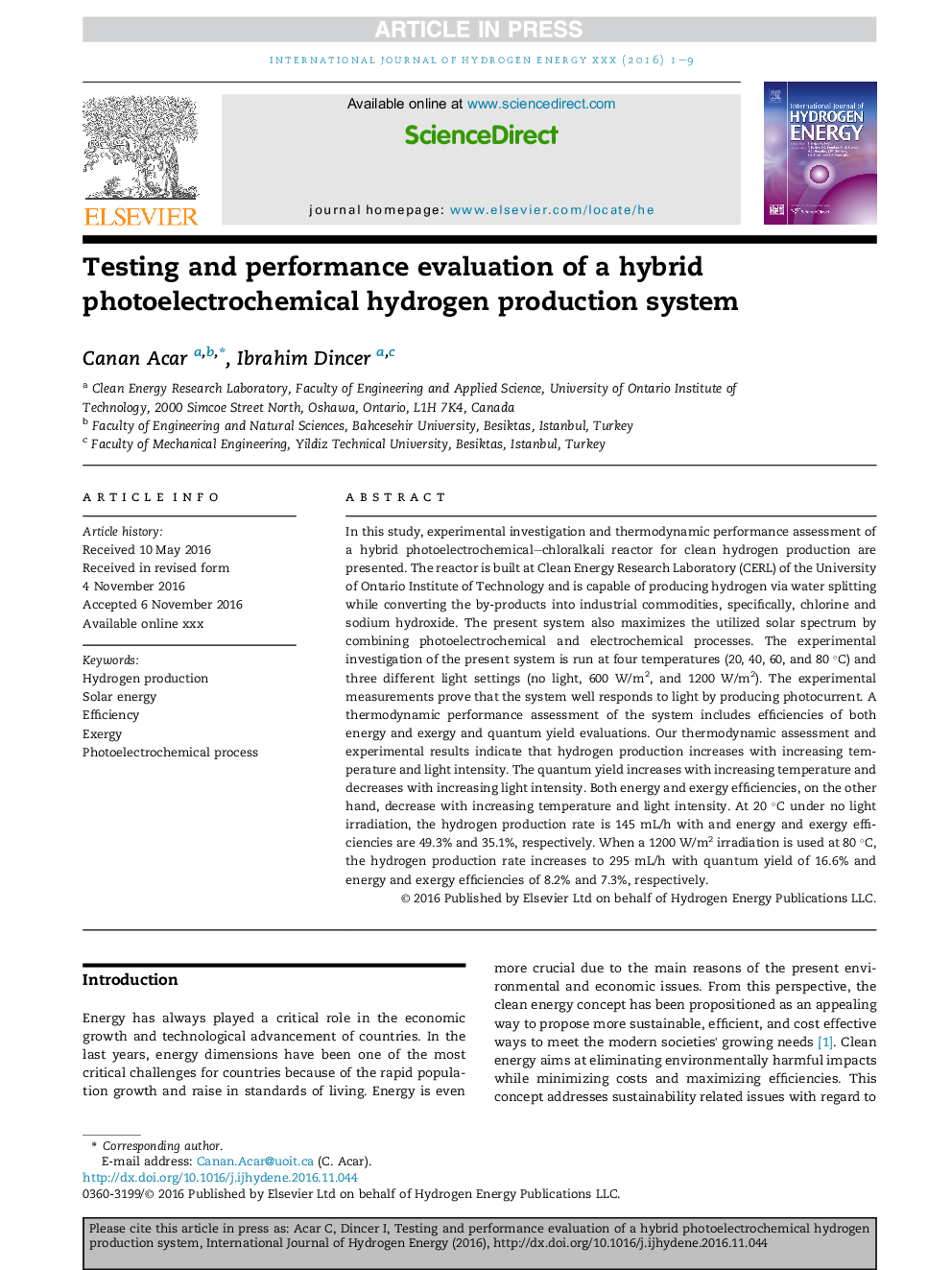| کد مقاله | کد نشریه | سال انتشار | مقاله انگلیسی | نسخه تمام متن |
|---|---|---|---|---|
| 5148450 | 1497371 | 2017 | 9 صفحه PDF | دانلود رایگان |
عنوان انگلیسی مقاله ISI
Testing and performance evaluation of a hybrid photoelectrochemical hydrogen production system
دانلود مقاله + سفارش ترجمه
دانلود مقاله ISI انگلیسی
رایگان برای ایرانیان
کلمات کلیدی
موضوعات مرتبط
مهندسی و علوم پایه
شیمی
الکتروشیمی
پیش نمایش صفحه اول مقاله

چکیده انگلیسی
In this study, experimental investigation and thermodynamic performance assessment of a hybrid photoelectrochemical-chloralkali reactor for clean hydrogen production are presented. The reactor is built at Clean Energy Research Laboratory (CERL) of the University of Ontario Institute of Technology and is capable of producing hydrogen via water splitting while converting the by-products into industrial commodities, specifically, chlorine and sodium hydroxide. The present system also maximizes the utilized solar spectrum by combining photoelectrochemical and electrochemical processes. The experimental investigation of the present system is run at four temperatures (20, 40, 60, and 80 °C) and three different light settings (no light, 600 W/m2, and 1200 W/m2). The experimental measurements prove that the system well responds to light by producing photocurrent. A thermodynamic performance assessment of the system includes efficiencies of both energy and exergy and quantum yield evaluations. Our thermodynamic assessment and experimental results indicate that hydrogen production increases with increasing temperature and light intensity. The quantum yield increases with increasing temperature and decreases with increasing light intensity. Both energy and exergy efficiencies, on the other hand, decrease with increasing temperature and light intensity. At 20 °C under no light irradiation, the hydrogen production rate is 145 mL/h with and energy and exergy efficiencies are 49.3% and 35.1%, respectively. When a 1200 W/m2 irradiation is used at 80 °C, the hydrogen production rate increases to 295 mL/h with quantum yield of 16.6% and energy and exergy efficiencies of 8.2% and 7.3%, respectively.
ناشر
Database: Elsevier - ScienceDirect (ساینس دایرکت)
Journal: International Journal of Hydrogen Energy - Volume 42, Issue 6, 9 February 2017, Pages 3605-3613
Journal: International Journal of Hydrogen Energy - Volume 42, Issue 6, 9 February 2017, Pages 3605-3613
نویسندگان
Canan Acar, Ibrahim Dincer,